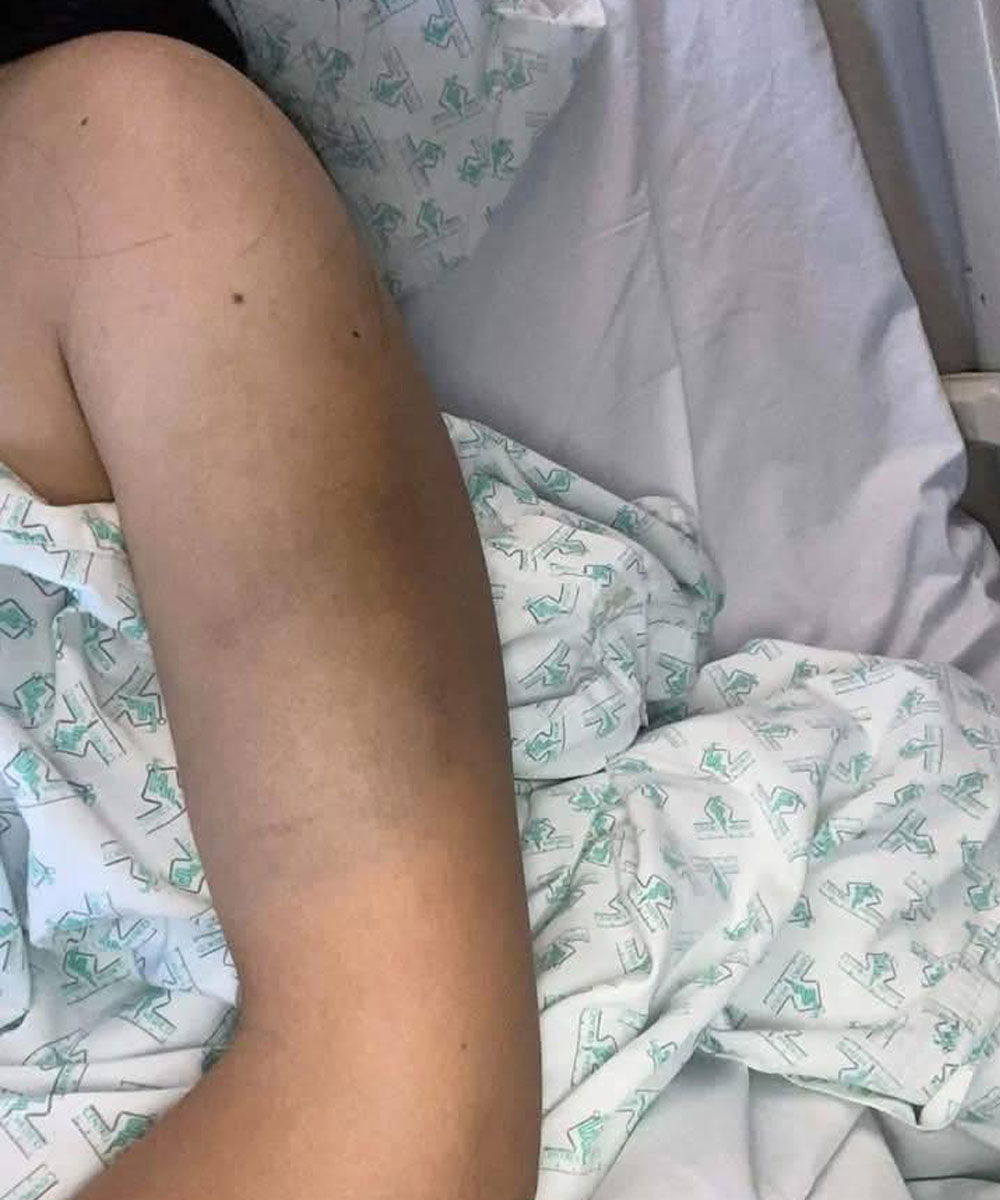
Waking up with bruises on your arms and no memory of a previous injury can be worrying. These types of marks, which appear for no apparent reason during sleep, often have common causes, although in some cases they can be a sign of a medical condition that requires attention.
Below, we explain why bruises may appear while sleeping and what to do if they occur frequently.
What is a bruise?
A bruise (also called a hematoma) is a collection of blood under the skin caused by the rupture of small blood vessels. It usually appears after a blow, although in some cases it forms without the person noticing.
Common causes of bruises while sleeping
1. Prolonged pressure or improper posture
Sleeping on an arm or applying constant pressure to an area of the body can rupture small blood vessels, especially if the skin is sensitive. This can cause a bruise without the person waking up.
2. Capillary Fragility
With aging or certain health conditions, blood vessels can become more fragile, causing them to break easily even with mild friction.
3. Blood Thinning Medications or Supplements
The use of aspirin, warfarin, ibuprofen, or supplements such as omega-3 fatty acids and vitamin E can make clotting difficult, increasing the likelihood of spontaneous bruising.
4. Vitamin Deficiencies
A lack of vitamin C, vitamin K, or iron can affect the health of blood vessels and their clotting ability.
5. Blood Disorders
In less common cases, unexplained bruising may be related to problems such as anemia, thrombocytopenia (low platelet count), or clotting disorders.
When to See a Doctor
You should seek medical attention if:
Bruises appear frequently for no clear reason.
They are large, painful, or change color very slowly.
They appear on several parts of the body at the same time.
They are accompanied by bleeding from the gums, nose, or heavy menstruation.
You have a family history of blood disorders.
Recommendations
Change your sleeping position to avoid pressure on your arms.
Use comfortable bedding that doesn’t constrict or cause friction.
Increase your consumption of fruits and vegetables rich in vitamins C and K.
Avoid self-medicating with blood thinners or supplements without medical advice.
Maintain good hydration and exercise moderately to improve circulation.
Conclusion
Bruises on the arms while sleeping are common and, in most cases, harmless. They are usually due to posture, pressure on the body, or capillary fragility. However, if they occur frequently or without an apparent cause, it is best to consult a health professional to rule out underlying conditions.















